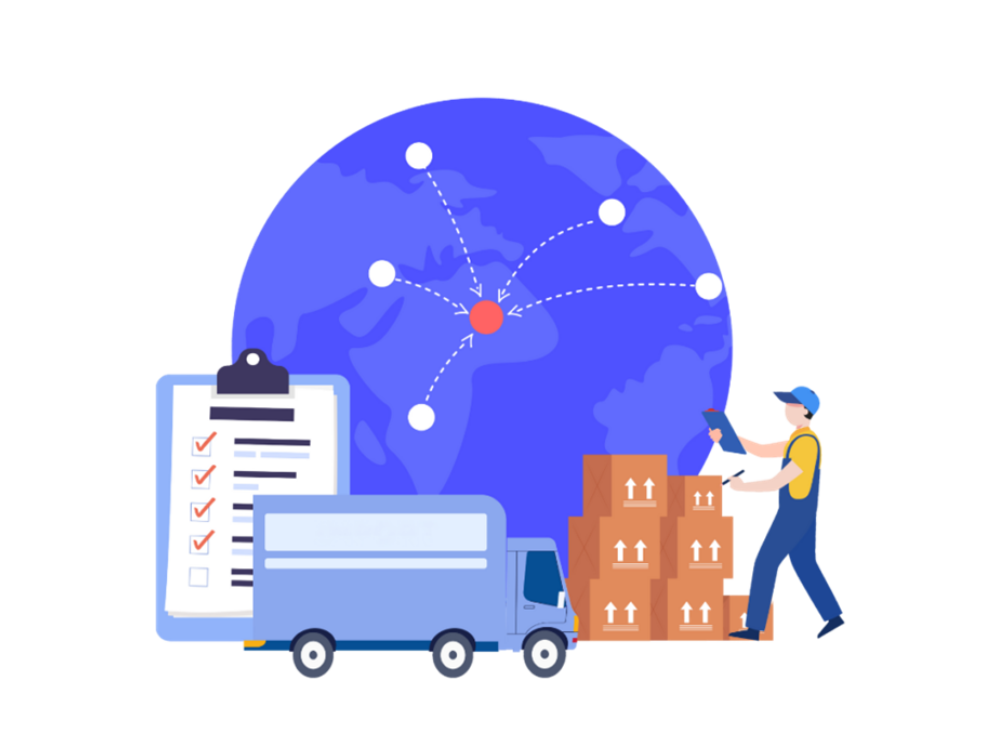Working in the logistics sector means immersing yourself in one of the backbones of the global economy, a field that, with the advent of e-commerce and increasing globalisation, has become increasingly important.
Logistics refers to the services of transport, delivery and storage of goods, ensuring that products reach customers at the most efficient time and in the most efficient manner.
Those who decide to work in this sector face daily challenges, from managing complex supply chains to implementing innovative technological solutions to optimise and speed up processes.
It is therefore an extremely dynamic environment, characterised by the need to adapt quickly to market changes and customer needs.
Despite the many challenges and difficulties, working in logistics offers the opportunity to make a difference in the world in which we live, consume and do business, making it a field full of satisfaction and opportunities for professional growth.
Summary:
What does it mean to work in logistics?
What do people in logistics do?
Logistics officer: what skills must he/she have?
Knowledge of logistics production processes
Problem solving and analytical skills in logistics
What is logistics?
Logistics, in its broadest sense, is the set of operations required to co-ordinate the acquisition, storage and transport of goods from the point of origin to the point of consumption, in accordance with customer requirements.
This field covers a wide range of activities, from inventory management to delivery planning, from material handling to optimisation of shipping routes.
At the heart of this area is the objective of maximising efficiency and reducing costs, while ensuring that products reach their recipients in a timely manner and in optimum condition.
Working in logistics, therefore, means actively participating in a complex system that requires a deep understanding of supply chain dynamics, as well as the ability to solve problems creatively and efficiently.
What do people in logistics do?
What does a logistician do? This question encompasses a universe of tasks and responsibilities that vary widely depending on the specific position within the sector.
Logistics employees may find themselves planning and managing shipping routes to maximise efficiency, or they may be involved in organising the warehouse, ensuring that goods are stored in a safe and accessible manner.
Those working in logistics are often involved in organising and monitoring deliveries, ensuring that products reach customers on time and solving any problems that may arise during transport.
This role requires considerable problem solving skills, as unexpected events are the order of the day, and the ability to maintain a high level of performance becomes crucial to the success of the entire supply chain.
On the basis of the above, the logistician must be a versatile professional, capable of handling a wide range of tasks with dexterity, from strategic planning to tactical action, always keeping the focus on the customer and the satisfaction of his or her every need.
Logistics officer: what skills must he/she have?
In the rapidly changing world of logistics, the skills required to excel have expanded far beyond simply being able to organise shipments or manage inventories.
With the increasing complexity of global supply chains and the emphasis on efficiency and sustainability, industry professionals must now possess a diverse set of technical, analytical and interpersonal skills.
Success in this field requires a constant commitment to learning and adaptation, characteristics that enable logistics professionals to anticipate challenges and capitalise on emerging opportunities.
But what are the skills to work in logistics then?
Knowledge of logistics production processes
An in-depth understanding of production processes is crucial for those working in logistics. This knowledge enables professionals to plan and implement supply chain operations efficiently, anticipating production needs and coordinating the movement of goods to minimise downtime and maximise production.
Being aware of how products are created, processed and assembled offers the possibility of identifying potential bottlenecks and developing innovative solutions to overcome them.
This requires not only careful observation of internal processes, but also an understanding of market trends and emerging technologies that may influence production.
Language skills in logistics
Language skills have become increasingly important in the logistics sector, especially for those working in an international context.
The ability to communicate effectively in several languages facilitates negotiations with foreign suppliers and customers, the management of contracts and the resolution of problems that may arise during cross-border transport.
Language skills help build trusting relationships with international partners and ensure that all parties involved have a clear understanding of objectives and expectations, reducing the risk of misunderstandings and mistakes.
Teamwork in logistics
Teamwork is an essential component in the logistics industry, where success depends on the ability to collaborate effectively with colleagues, suppliers, customers and other partners.
Logistics professionals must be able to work within multidisciplinary teams, sharing information, resources and responsibilities.
The ability to listen, flexibility in solving problems and a flair for negotiation are all qualities that contribute to a collaborative and productive working environment. The ability to coordinate with other departments, such as sales, purchasing and production, is crucial to ensure that the supply chain runs smoothly and efficiently.
Problem solving and analytical skills in logistics
Analytical and problem solving skills are crucial in the field of logistics, where professionals are regularly called upon to make quick and informed decisions in response to changing situations.
The ability to analyse large volumes of data, assess risks and identify the best solutions to minimise costs and maximise efficiency is crucial. This includes the ability to use advanced technological tools for data collection and analysis, as well as critical thinking to navigate complex logistical challenges.
An effective problem solving professional is able to anticipate potential complications and develop contingency plans to ensure that the supply chain remains resilient in the face of unforeseen events.
Having reached the concluding part of this article, it can be said that the logistics sector is a highly dynamic and challenging environment, full of opportunities. The key to success in this field lies in the ability to adapt quickly to changing market needs, offering tailor-made solutions that respond effectively and efficiently to customer demands.
In this context, Sinergy Solution emerges as a reliable partner, offering customised and flexible logistics services designed to meet each customer’s specific needs and exceed expectations.
Whether optimising supply chain management, improving warehouse processes, or implementing innovative logistics strategies, Sinergy Solution provides its experience and expertise to guarantee excellent results.
Our carefully customised services are designed to offer solutions that not only meet, but anticipate our customers’ needs.
If you are interested in finding out how the services offered by Sinergy Solution can support your business and guide you to new horizons of efficiency and success, please do not hesitate to contact us.



